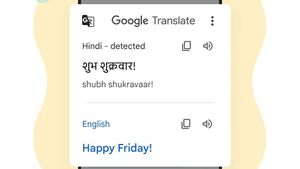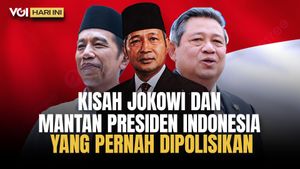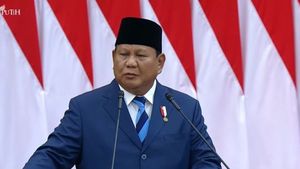JAKARTA - BUMN Minister Erick Thohir is seriously tidying up the performance of State-Owned Enterprises (BUMN). He also issued instructions for a moratorium on the establishment of subsidiaries and joint ventures for state-owned companies.
This is stated in the decree of the Minister of BUMN NUMBER SK-315 / MBU / 12/2019. This is done, because Erick wants to evaluate all the children, grandchildren, and great-grandchildren of BUMNs.
Economist Indef Bhima Yudhistira agrees with what Erick is doing. This is because according to Bhima, there are so many children, grandchildren, and even great-grandchildren of BUMN businesses whose performance is not healthy and even tends to burden their own parents.
"The function of BUMN should be returned to its core business. Do not take offside taking private land that is not strategic, for example BUMN Karya but has a hotel service business. If SOEs return to their core, their performance will be easier to manage," he told VOI, Monday 16 December.
Even in the Ministerial Decree, Erick will review the provisions for concurrent positions of directors and commissioners in state-owned companies. This became one of the main targets, after Erick found out that a number of directors in the company turned out to be commissioners in more than six subsidiaries.
"The children and grandchildren of BUMN have also caused a free rider problem, namely the number of commissioners and directors that have been divided, including volunteers," said Bhima.
For this reason, he suggested that the children and grandchildren of BUMN who leave the core business of the BUMN parent company, should be eliminated, because it is better if the business of the subsidiary is ordered to the private sector. This was also agreed by Mardani H. Maming, Chairman of the Central Executive Board of the Indonesian Young Entrepreneurs Association (BPP HIPMI).
Maming said, the presence of children and grandchildren of businesses who occupied him was a source of waste and weakened the competitiveness of SOEs. "So we suggested, just offer it to the private sector," said Maming.
Maming added that the BUMN supply chain is currently monopolized by the children and grandchildren of BUMN itself at this time. One BUMN, he said, could have tens or even hundreds of children and grandchildren. "Maybe there are almost a thousand of them," he said.
As a result of this monopoly from upstream to downstream, said Maming, the BUMN supply chain was inefficient and became a new place for waste. This is because the procurement process in BUMN is very long.
"In the end, the procurement was handed over to the private sector. But long. Because through his business children and grandchildren. Why don't the mother company directly tender to the private sector, "he said.
Maming said, by being offered to the private sector, there was intense competition on the part of venders or prospective suppliers. Thus, BUMN will get competitive prices and good quality goods and services.
"We see that in BUMN, there is almost no competition for suppliers, there are direct appointments because the children and grandchildren of the business or suddenly there is a regulation that a subsidiary is asked to partner with the private sector. In fact, the private sector can compete in a healthy manner to supply to BUMN. These spaces are not healthy enough to be created in BUMN, ”said Maming.
The impact of this waste is that BUMN competitiveness is very weak. The profitability of BUMN, for example, is of great concern. Of the 142 BUMNs, only a small proportion can be considered to have a profit and have a contribution to state revenue. BUMN profit of Rp. 189 trillion, only 15 BUMNs contributed up to 73 percent.
Therefore, Maming asked that the BUMN business ecosystem be synergized with the private sector. "The private sector is 100% breathable or has a spirit of competitiveness and competition. If BUMN, which are half of their social breath, synergize with the private sector, the competitive spirit will also be transferred to BUMN, "said Maming.
Maming gave an example, the financial industry which is currently managed by BUMN, is performing very well. This happens, because the financial industry is very strict about limiting the control of businesses outside the core business of BUMN Banking.
"Our banks are performing well. The rules are strict there. They are prohibited from doing business outside of finance. It's funny if Bank Mandiri suddenly has a laundry business, ”said Maming.
Maming agreed with Erick that SOEs should only focus on working on their core business lines. Previously, Erick said, there were only 15 BUMNs that had satisfactory profit performance. This is actually not good, because of the total BUMN, only a few are able to process their business well. The 15 BUMNs turned out to focus on certain businesses and sectors, for example banking, telecommunications, communications, and oil and gas.
The English, Chinese, Japanese, Arabic, and French versions are automatically generated by the AI. So there may still be inaccuracies in translating, please always see Indonesian as our main language. (system supported by DigitalSiber.id)













